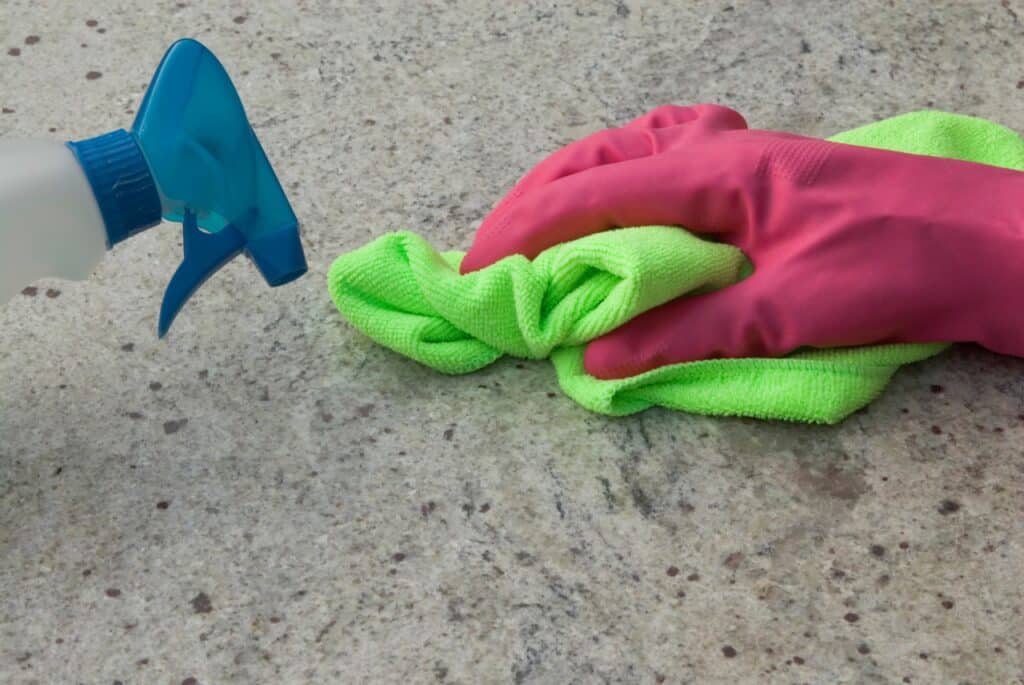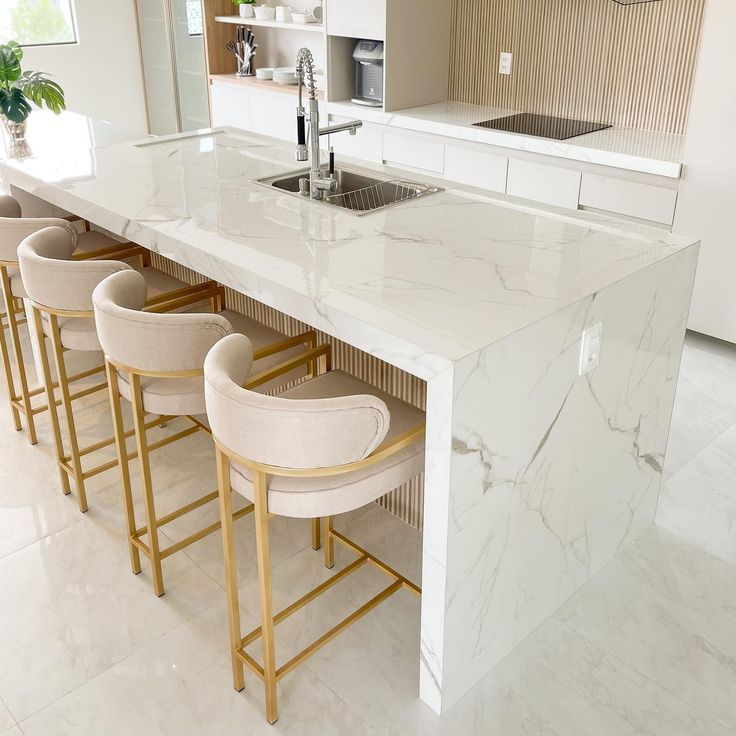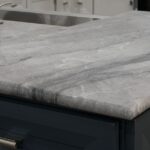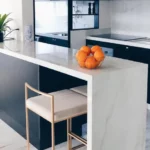Porcelain countertops are the new darlings of home design – practically drawing the spotlight from marble to themselves. As you can read in our complete guide to porcelain slabs, that fact is reminiscent of the amazing properties that porcelain holds at face value and over time, surpassing even the most cost-beneficial natural stones such as quartzite (whose appearance, by the way, can be mimicked by this material). But should porcelain countertops be sealed like natural stones?
Find out the maintenance needs of this investment in this article!
Read as well: Porcelain vs Quartz – Making the Best Choice
Should porcelain countertops be sealed or not?
Sealants are responsible for preventing water and chemical stains from appearing on a countertop’s surface. This method of maintenance is a staple recommendation of several stonemasons around the world, particularly when it comes to baths and kitchens, which are naturally vulnerable to daily activities.
However, unlike traditional natural stones, porcelain countertops don’t need to be sealed. Porcelain is a non-porous material – meaning it has a meager absorption rate compared to stones like granite and marble, though it doesn’t fall behind on either resistance or durability standards.
Because of this, sealing is not necessary to protect the surface from staining or damage caused by penetrating liquids, acidic substances, and leftover organic residue. In fact, this is a characteristic present in most engineered countertop materials; quartz is another example of a manmade material that doesn’t need to be sealed.

But that is not all. See some reasons below why porcelain countertops don’t require a sealant to withstand the test of time and still look pristine:
- Porcelain is an incredibly durable material made by firing clay and other minerals at extremely high temperatures. This process results in a material that is resistant to scratches, chips, and cracks, making it highly resilient to wear and tear over time;
- Porcelain is also highly heat-resistant, which means it can withstand exposure to hot pots, pans, and other kitchen items without sustaining damage. This makes it a suitable material for use in kitchens where high temperatures are common;
- Porcelain countertops are manufactured with color and pattern throughout the material rather than just on the surface. This means that even with prolonged use and exposure to sunlight, the countertop will remain consistent and vibrant over time, without discoloration.
In case you didn’t know, in the world of hardscape design, porcelain pavers share this same quality of life as their counterparts here, further showcasing porcelain’s immense versatility and structural value.
How to clean and maintain porcelain countertops thoroughly
At the end of the day, caring for porcelain countertops takes virtually no extra work and no special cleaning products. Given the fact they need no sealing treatment, most of the time you can use paper towels and some clear water every two or three days to keep their shine. In case there is an obnoxious stain that requires a bit more attention, we recommend a neutral cleaner above all.
Check out some of our techniques to preserve the lifespan of porcelain countertops:
- Clean your porcelain countertop regularly with a soft cloth or sponge and a mild detergent or soap. Rinse the surface thoroughly with water afterward and dry it with a clean cloth to prevent water spots;
- If spills occur, especially those from acidic substances like citrus juice or vinegar, wipe them up promptly to prevent staining. For stubborn stains, you can use a mixture of baking soda and water or a gentle household cleaner specifically formulated for porcelain surfaces;
- To prevent scratching or chipping, always use cutting boards and trivets under hot pots, pans, and other cookware. Avoid dragging heavy or abrasive items across the countertop surface;
- While porcelain is durable, it can still chip or crack if subjected to strong impacts. Be cautious when handling heavy objects near the countertop and avoid dropping items onto it.

Keep in mind that, while porcelain countertops are generally resistant to stains and scratches, it’s still important to clean them regularly and avoid abrasive cleaners or harsh chemicals that could potentially damage the surface. Also, if your porcelain countertop has grout lines – also known as seams – make sure to seal them (this being the only exception to the exception) to prevent unreachable staining and mainly mold growth.
Don’t miss: Quartzite Countertops vs Granite Countertops
Eagle Stones has a top-quality catalog of porcelain slabs waiting for you!
Ready to make the best choice of your life? Then get in touch with our agents to begin planning your next interior renovation – and have porcelain countertops as the main character.
We can guide you through every step not only of your choice but of the installation process as well; our professionals have been serving the city of Sarasota and all surrounding counties for over a decade! Make sure to visit our showroom to see firsthand how porcelain countertops will look in your ambiance.
We’ll be waiting for you!
QUICK NOTE: Did you know that porcelain can also be used as a paving stone for gorgeous outdoors? Eagle Pavers, our branch company, offers a huge catalog of top-quality porcelain pavers to embellish your home alongside your new countertops. Click here to check us out!



